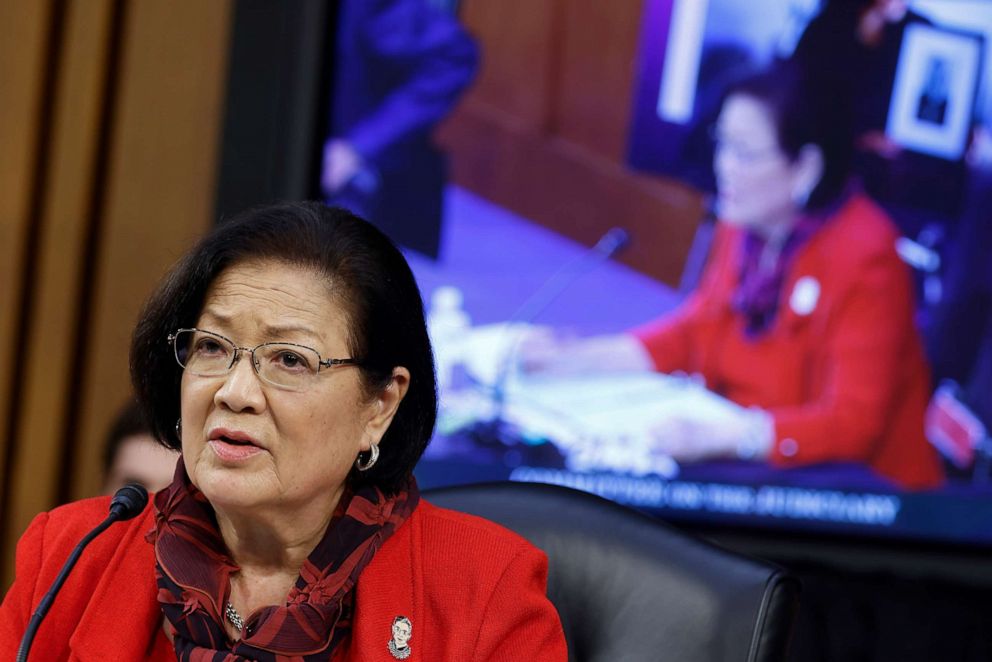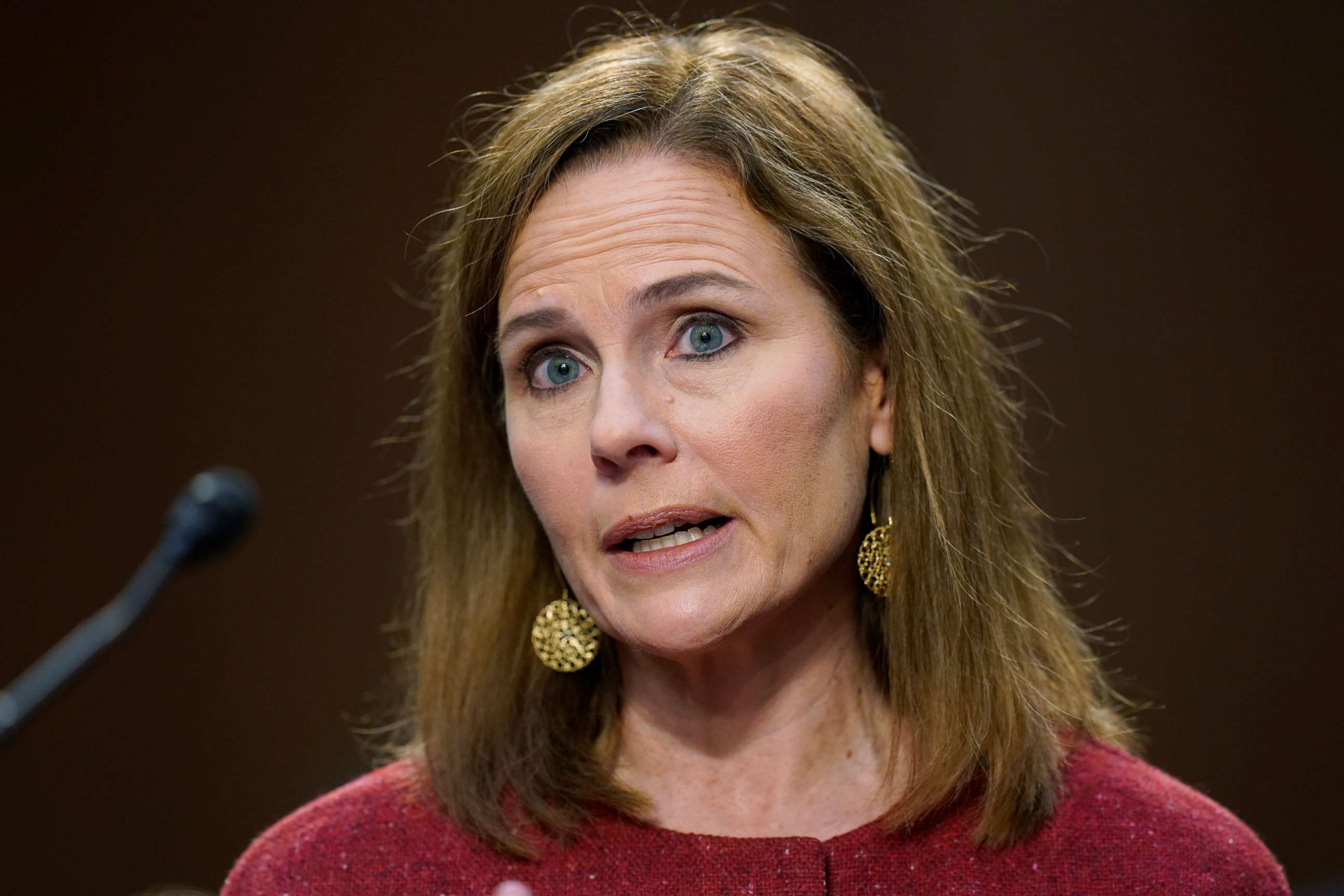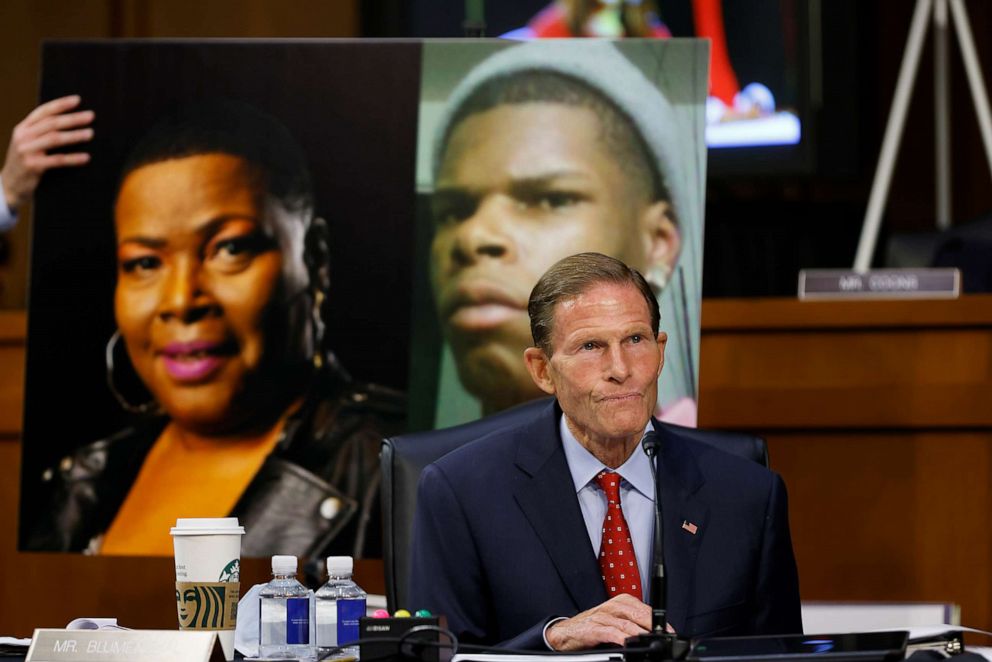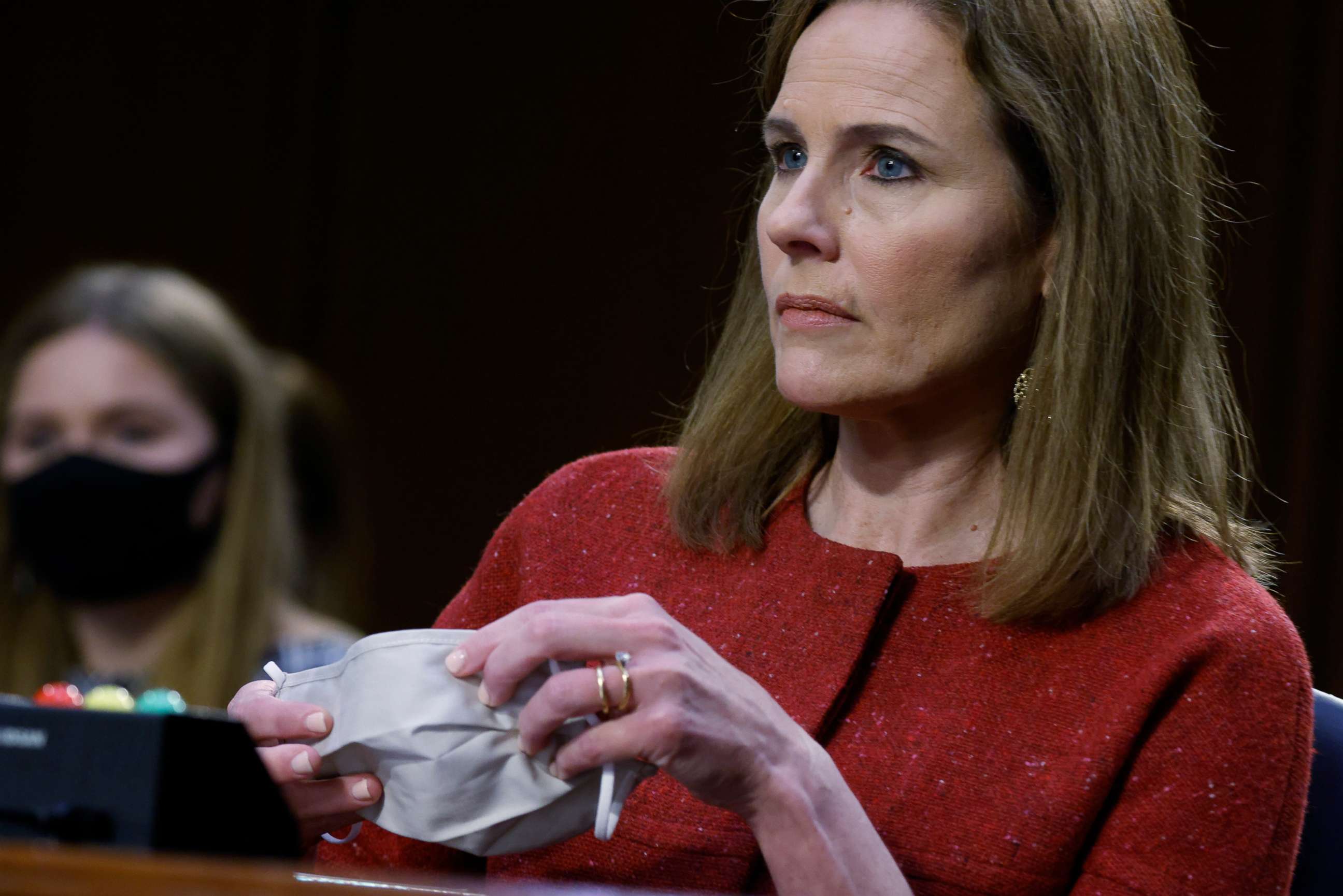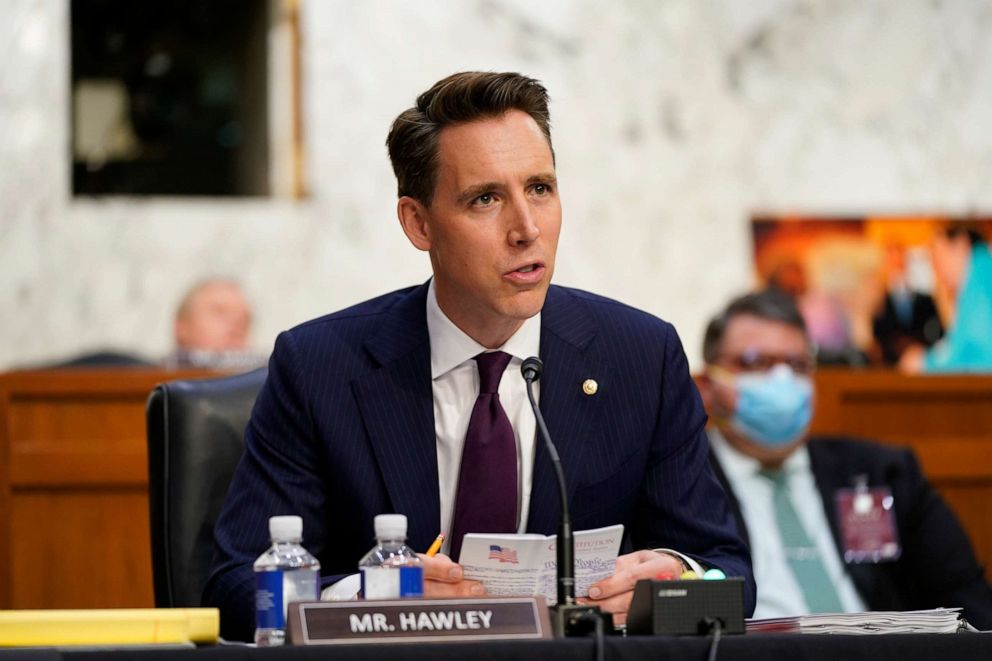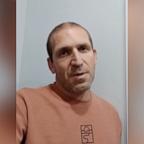Barrett dodges questions on a peaceful transfer of power, presidential pardoning powers
Barrett looked uncomfortable with questions raised by Sen. Cory Booker, D-N.J., who asked generally about the powers of a president but Barrett noted their current relevancy.
"Do you believe that every president should make a commitment unequivocally and resolutely for the peaceful transfer of power?" he asked.
"Well, Senator, that seems to me to be pulling me in a little bit into this question of whether the president has said he would not peacefully leave office. To this extent that it's a political controversy, as a judge I want to stay out of it," Barrett replied, before calling the historic peaceful transfer of power "one of the beauties of America."
"Do you think the president has the power to pardon himself or any past or future crimes he may have committed against the United States of America?" he asked.
"Senator Booker, that would be a constitutional question. In keeping with my obligation not to give hints, previews or forecasts of how I would resolve the case, that's not one I can answer," Barrett replied.
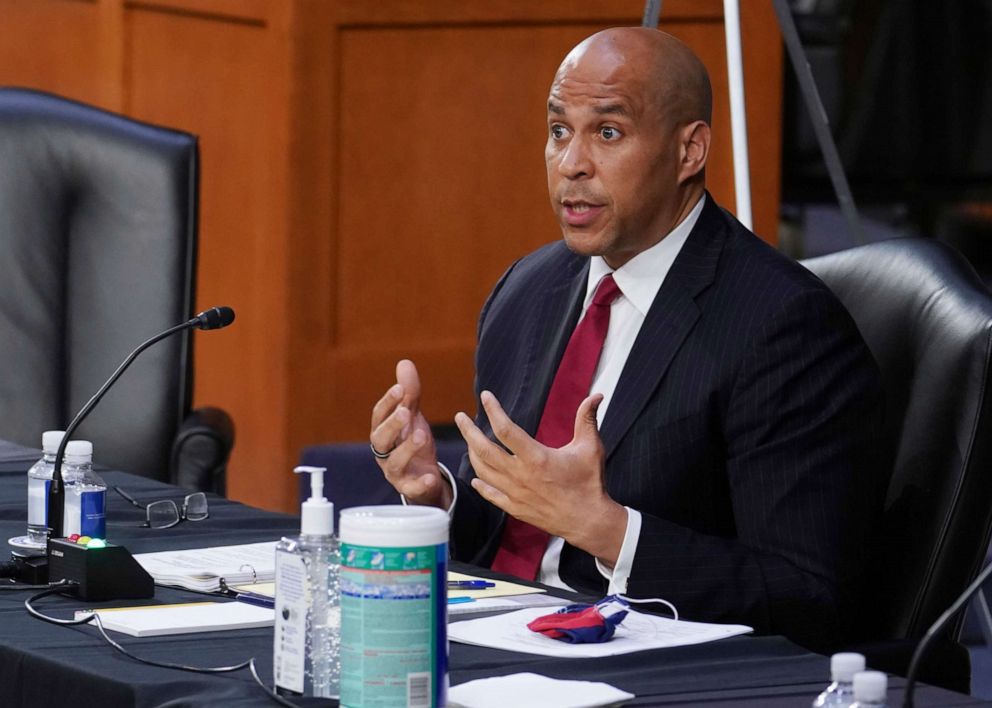
Booker also asked if it is unreasonable for those who rely on the Affordable Care Act to believe it might be overturned if she were to be confirmed to the Supreme Court.
"All I'm asking is can you empathize with that?" Booker pressed. "Can you understand that?"
"Senator, I can certainly empathize with people who are struggling. I can empathize with people who lack health care," Barrett said. "One of the things that was so striking to me when we went to get our daughter, Vivian, from the orphanage in Haiti, the lack of access to basic things like antibiotics. It made me appreciate the fact that we have access to health care. I can certainly empathize with all of that."
She went on to say, "With respect to the ACA, should I be confirmed and as I've said I would consider the issue of recusal, threshold question of law and whether to hear that case."
"As a guy who looks at justices, I was asking you to express that you understand the fear that is in America right now," Booker said.
